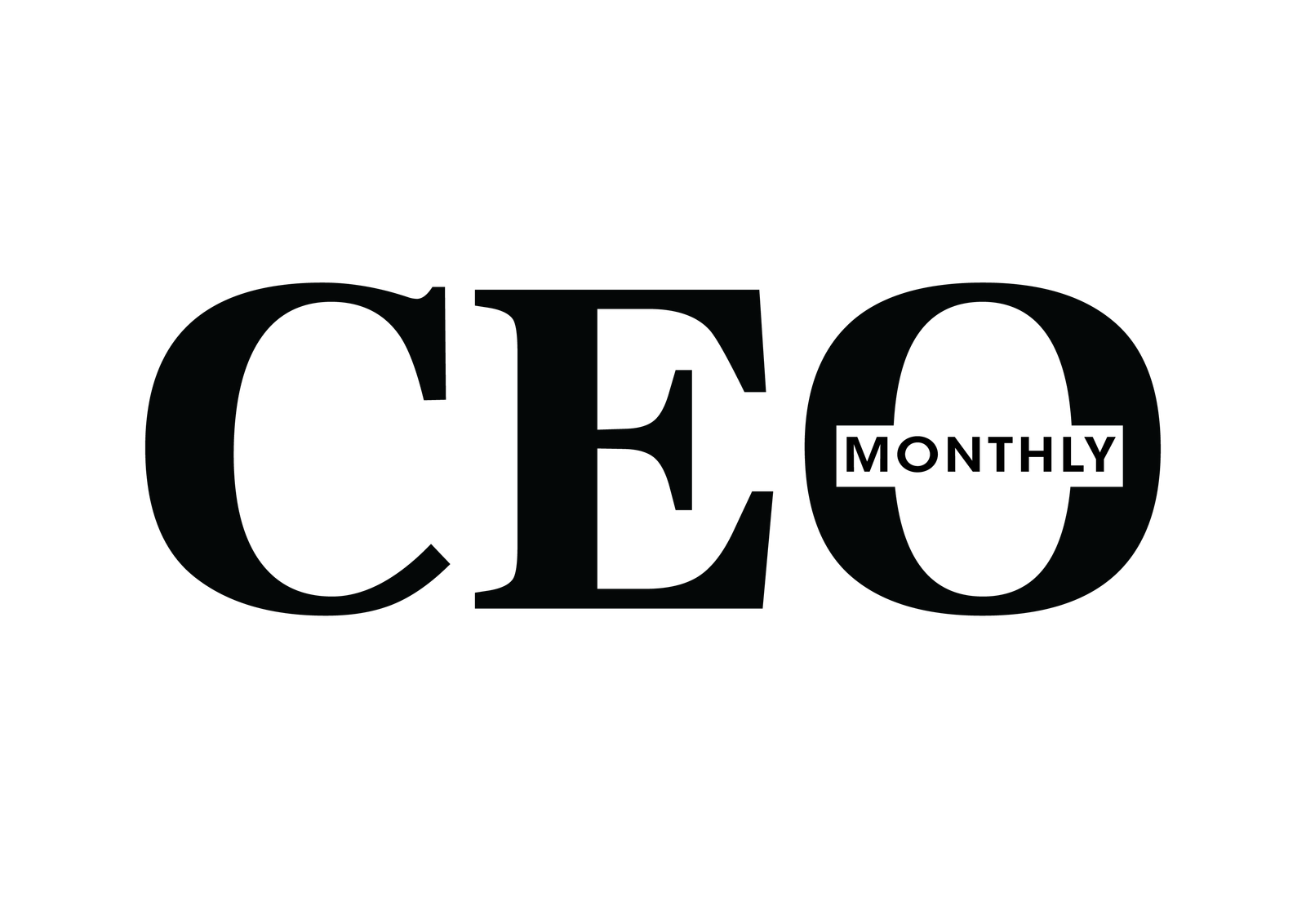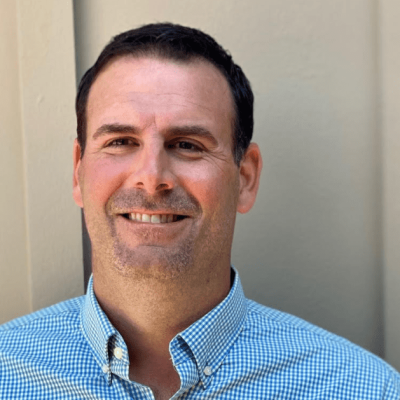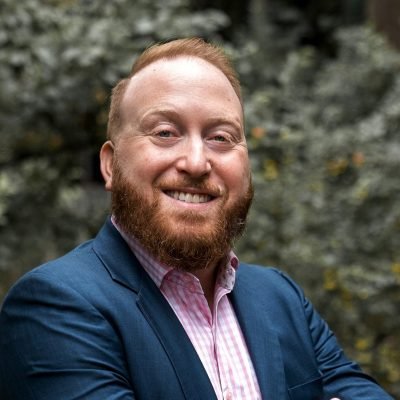“Communication is key to all of our community and employee engagement and ultimately our success”
Paige Arnof-Fenn
Paige Arnof-Fenn is the founder and CEO of Mavens & Moguls, a global branding and digital marketing firm whose clients range from early-stage start-up to Fortune 500 companies including Colgate, Virgin, Microsoft and The New York Times Company. She was formerly VP Marketing at Zipcar and VP Marketing at Inc.com. Prior to that she held the title of SVP Marketing at Launch Media, an Internet start-up that was later sold to Yahoo.
Arnof-Fenn has also worked as a special assistant to the chief marketing officer of global marketing at The Coca-Cola Company and held the position of director of the 1996 Olympic Commemorative Coin Program at the Department of Treasury.
Arnof-Fenn is a founding Board member of Women Entrepreneurs in Science & Technology and she is the past Board Chair of the Alumni Board of Stanford University. She was the Appointed Diriector for Harvard Business School on the Harvard Alumni Association Board, which governs all the schools across the university. She is also the former Vice President of the Harvard Business School Global Alumni Board and the only woman Chair of the Board of Trustees of the Sports Museum at the Boston Garden, is an advisor to several early stage private companies and non profit organizations and is also a 3 time past president of the Stanford Club of New England which serves alumni in a 5 state region. She holds an undergraduate degree in economics from Stanford University and an MBA from Harvard Business School.
We’re happy that you could join us today! Please introduce yourself to our readers. What’s your story?
Paige Arnof-Fenn: I am a child of the 60s and 70s who grew up in the Deep South. I am the oldest of 3 and was always a good student and athlete growing up, responsible and hard working. My father and both grandfathers were in business so I always thought I would go that route too. From a young age, I loved sports, movies, TV, and travel. I was an exchange student in France in high school and in Italy in college. As an adult I have lived and worked in NYC, LA, Bay Area, Atlanta, DC, Cincinnati, etc. but have been in Boston for the past 20+ years. After graduating college with a degree in Economics, I started my career in finance on Wall Street in the 80s and had a successful career in Corporate America at companies like Procter & Gamble and Coca-Cola and worked at 3 different startups as the head of marketing before they went public or were sold.
I took the leap into entrepreneurship right after 9/11 when the company I worked for cut their marketing. I had nothing to lose. I have never looked back and love being an entrepreneur.
CEOs and leaders usually have different motives and aspirations when getting started. Let’s go straight to the beginning. What was your primary goal for starting your business? Was it wealth, respect, or to offer a service that would help improve lives?
Paige Arnof-Fenn: I did not plan on starting a company. I always wanted to go work for a large multi-national business and be a Fortune 500 CEO. When I was a student I looked at leaders like Meg Whitman & Ursula Burns as my role models. I started my career on Wall Street in the 80s and had a successful career in Corporate America at companies like Procter & Gamble and Coca-Cola and worked at 3 different startups as the head of marketing. My company’s mission is to bring world class marketing talent and expertise to organizations that want to make a difference in the world regardless of size or budget.
We believe every organization deserves the right words and pictures to tell their story in compelling ways. Being an entrepreneur provides me a platform to do work I truly enjoy with and for people I respect. Like most entrepreneurs, I am working harder and longer than ever and I have never been happier. Working for yourself and building a business you started in incredibly rewarding and gratifying. It has been a lot of fun, I joke that I am the accidental entrepreneur. I knew I had made it as an entrepreneur when Harvard wrote 2 case studies on my business a few years after I started it, we were very early to pioneer sharing resources on the marketing front (before my company it was really only done with HR, legal and accounting/finance).
Tell us about 2 things that you like and two things that you dislike about your industry. Share what you’d like to see change and why.
Paige Arnof-Fenn: What I love about marketing is that it is always changing so you are always learning new things and never get bored, it touches so many parts of the economy, it affects decisions and behaviors, you can track and measure it and mostly becauseI think it is fun! As one of my professors used to say marketing is everything and everything is marketing.
Marketing can be exhausting with technology and social media we are always on today 24/7. All work and no play is just not a sustainable option, it can be tough at times to stay productive, energized and focused.
The world has changed in profound ways so brands need to embrace market research now than ever! Whatever we assumed, thought we knew or understood before Covid about our customers and market must now be checked because the world has changed so much since last March. It is no longer a nice to have, it is essential before you spend anything you need to conduct market research now! As we move to a more remote/virtual world trust becomes an even more important currency to getting things done. Building trust will determine your success so lack of trust will be a huge obstacle I think after the pandemic ends. Technology does not have to be isolating it can be used to build our real world communities and relationships too. Trust grows when you have consistent messaging and deliver on your promises so build a strong relationship that is based on your value proposition not on price. Authenticity is the key, it has to be and feel real for it to work I think. Social media and CRM tools are only as effective as the relationships you have built. I have found that building trusted relationships is what drives my business and technology supports them once they are solidified. I want brands to realize that technology helps advance the conversation but it will never replace the human interaction that builds trust over time.
Companies around the world are rapidly changing their work environment and organizational culture to facilitate diversity. How do you see your organizational culture changing in the next 3 years and how do you see yourself creating that change?
Paige Arnof-Fenn: Communication is key to all of our community and employee engagement and ultimately our success. I try to set the tone upfront with one rule, when in doubt over-communicate especially now with everyone working hybrid/remotely. Between the pandemic and the possible recession, we have to acknowledge that now things are different so we need to communicate in a way that will give our audiences better focus, helping them to create a bridge from today to the future combining information and need, synthesizing feeling and facts. I feel leaders have a tremendous responsibility because never before has communication had the power to help society in the way that it does right now.
Words are part of the healing process and we can see which leaders are doing the best job every day with messages that touch not only the mind, but also the heart and soul. There has never been a more important time to provide accurate, empathetic communication with transparency, truthfulness and timeliness. I think being authentic, confident, empathetic, providing substance, and staying relevant are all the qualities we need right now.
Over the next 3 years we must be adaptable/agile, have a growth mindset, be more inclusive, collaborative and build trusted relationships to drive the business leveraging technology to build real world communities and relationships too. Being able to adapt to change is critical so staying nimble today is core to survival and ultimately success. We can never stop learning/experimenting, must stay focused on the future and see opportunities ahead by embracing a culture of learning/growth. It takes effort and a commitment to excellence for people to continually learn/grow especially now in a virtual/remote environment.
I do not think there is one trait to stay sharp/fresh, I recommend to my team using a combination of reading/learning online and off/attending conferences/talks, networking/newsletters from influencers/TED talks/podcasts/finding mentors/ listening to all feedback good and bad. To stay relevant/keep growing I also encourage the team to prioritize professional development to keep skills fresh and stay on top of new trends/technologies.
According to the Michigan State University “An organization’s culture is responsible for creating the kind of environment in which the business is managed, and has a major impact on its ultimate success or failure.” What kind of culture has your organization adopted and how has it impacted your business?
Paige Arnof-Fenn: I have been fortunate to work in several world class businesses in my career like Procter & Gamble and Coca-Cola with growth mindsets and l have tried to create that culture in my company too. In my experience, having a growth mindset helps successful people realize that the more happiness and wealth they acquire the more they can help others succeed too. Their gratitude becomes a multiplier and virtuous circle creating a positive .environment for future success.
The key is to make the know-it-alls see the power in becoming learn-it-alls. My advice is to get rid of fixed mindset people early, I should have done it as soon as I saw they were not going to be part of our future. Attracting great talent and getting the right team in place is key to your success. I learned the hard way that the people you start with are not always the best ones who grow with you so if you find yourself with people who are not up to the challenge and able to scale do yourself and them a favor and move on. “A” team players like to work with other stars and if the team is not on the same page as business starts to take off the laggards will feel threatened and the culture will suffer. Keep the bar high and attract the best talent you will never regret it. Lesson learned!
Richard Branson once famously stated “There’s no magic formula for great company culture. The key is just to treat your staff how you would like to be treated.” and Stephen R. Covey admonishes to “Always treat your employees exactly as you want them to treat your best customers. What’s your take on creating a great organizational culture?
Paige Arnof-Fenn: I agree, as teams adjust to the new normal during the pandemic, they look to leaders to provide clear and consistent messaging regarding not only the day-to-day, but what’s coming next. This places great responsibility on company leadership because employees can be a company’s biggest source of advocates and influencers. Treat them right and provide them with guidance, and they will share the love, not only with friends and family, but on social media and beyond, strengthening brand reputation organically. During this unprecedented crisis, many employees are facing huge discrepancies in the way companies are communicating. Whatever the question is my advice is to over-communicate and put employees first. A well-informed employee can steer brand perception in a positive direction despite the uncertain future. Putting your people first is not just for large companies, small businesses have the ability to reach out to their employees and make a real difference too.
Effective leadership communication is not just the message, but the method in which you communicate to employees that matters. A simple email may not suffice for a very large announcement. Communicating with employees right now it not just about giving updates (good or bad) leaders need to listen too. When transmitting important communication to employees here are some tips:
Be user-friendly and direct
Tell recipients right at the top what the message contains, bullet points are a good option
Write with authority, humanity and clarity
Maintain an FAQ mindset, anticipate the “what does this really mean to me?” questions from employees
Remember that people under stress don’t always process information well, if it’s important information, send it multiple times in multiple messages
In addition to information, people need encouragement and inspiration so send brief messages of support to your team as needed
The overwhelming majority of more than 9,000 workers included in a recent Accenture survey on the future of work said they felt a hybrid work model would be optimal going forward, a major reason for that being the improved work-life balance that it offers. How do you promote work-life balance at your company?
Paige Arnof-Fenn: Like most small business owners and entrepreneurs there are never enough hours in the day to fit everything in so when something has to give it is usually time I have allocated for myself to exercise or just relax. A mentor once told me that to stay sane and be successful “me time” is not a luxury or pampering, it is maintenance, respecting my time on the calendar and taking myself as seriously as I take my most important clients is the most important act I can do to care for myself because if I am not at my peak performance I am not going to be useful to anyone else so I encourage my team to:
Give yourself permission to say no. Whether it means sleeping in (no to an alarm clock), meditating, taking a walk, delegating more work or just turning off your phone and computer (no I will respond later on my own schedule), simple acts of letting yourself relax and enjoy the moment are the very best gifts you can give yourself. It is about touching people in meaningful ways which may mean being less busy not more.
Disconnect from technology periodically and focus on cultivating human, face to face relationships (when not social distancing). Even meeting for virtual coffee or drinks can accomplish so much more than e-mail exchanges, social media posts, etc. I have found that building relationships is what drives my business and technology supports them once they are solidified. Technology helps advance the conversation but it will never replace the human interaction that builds trust over time.
Take breaks with exercise and practice gratitude — I am so grateful we can work productively in home offices with no commute
How would you describe your company’s overall culture? Give us examples.
Paige Arnof-Fenn: Our culture is inclusive and collaborative. I tend to ask lots of questions and get input from all parts of the organization because I have found some of the best ideas come from unexpected people. I prefer to over communicate and delegate a lot so people feel invested in the process and contributing to the team’s success. I think people do their best work in a give and take/collegial environment.
It is believed that a company’s culture is rooted in a company’s values. What are your values and how do they affect daily life at the workplace?
Paige Arnof-Fenn: It is important to me to stay true to my core beliefs. Loyalty is one of my core values—loyalty to self and to others whom I respect. It’s important to me to gauge how many colleagues and customers come back and refer us to those who trust them. Being true to the mission of the organization and delivering superior experiences matter to me a lot too. Having the confidence to walk away from a client or colleague who’s diluting the equity in your brand is tough, but it’s necessary sometimes. You must always be authentic to the essence of your brand and surround yourself with people who reinforce your brand and its values–not tarnish it.
I had to fire a client in my first year of business. It was absolutely the right decision but a tough one to make! On a personal level the guy was a jerk who never paid on time and was rude to my team who was doing great work for him. He was mean, unappreciative and had terrible manners. I am from the South and expect people to behave with common decency. He hired us to do PR for his firm and I realized if we could get great press for a guy like him then people who knew him & knew how difficult he was might want to hire us too to help them thinking “hey these PR people must be really good and I’m not as nasty as this guy so imagine what they could do for me!” I did not want to attract other bad clients so even though he signed a 1 year contract I ended it after 3 months. It sent a signal to my team that the money was not worth an unappreciative client who was a jerk and treated us poorly.
We replaced the income and more within a month with a much better client. I have never looked back. Optics matter and culture counts, as the leader you have to set the tone for your group, you better walk the talk because all eyes are on you so your team is not just listening to what you say but also watching what you do and how you respond/react. When we say we have a no jerks policy we really mean it. Life is too short to work with or for jerks. When it is your business it is up to you. It attracts the right people as clients and colleagues for the ecosystem I am trying to build. When killing tough clients with kindness does not work you just have to shake hands and part ways sometimes.
An organization’s management has a deep impact on its culture. What is your management style and how well has it worked so far?
Paige Arnof-Fenn: In business being decisive is an important quality. You rarely have all the information or data you need to be 100% confident but to keep things moving forward and your team on track you need to become comfortable with some uncertainty. In my experience the best ways to stop being indecisive are first and foremost stop trying to be perfect. Perfection does not exist so do not get paralyzed trying to find it. The key for me is to make the best decision with what you have and know you can pivot or course correct down the road when you know or learn more. I have learned to stop “should-ing” myself, when you stop trying to please or impress and worrying about what everyone else will think, the best decision often becomes clear.
Every organization suffers from internal conflicts, whether functional or dysfunctional. Our readers would love to know, how do you solve an internal conflict?
Paige Arnof-Fenn: Internal communications are key to so many aspects of team productivity and culture. In my experience sending out confusing and overcomplicated messages is surprisingly common in internal communications and can lead to conflict. Messages can be passed down from senior management that assumes a certain level of knowledge that may not be in place so it can be confusing and open the door to unnecessary stress and distraction across the organization. Employees may misinterpret communication from the CEO in a negative way which could spread through the company faster than the actual message and worse end up on social media so simple and clear communication is essential or you risk damaging your brand and reputation. My advice is to keep it short and sweet whenever possible, the more simple and clear the better to minimize the chance of confusion or misinterpretation. I have found using bullet points, italics, bold type, etc. can make it easier for people to understand.
I am a big fan of newsletters, video, surveys and e-mail. They are great ways to build relationships over time and keep the conversation going. It is just so much easier now. You do not need to be a big multinational company to have the tools at your disposal anymore. It is impossible to time your outreach so that you are in front of them exactly when they have questions or need your help so I just try to stay in regular communication with them so that when they have a problem I can help them solve or they need coaching or direction I am a click away. We are all in the relationship business after all. Wasn’t it Woody Allen who said 80% of success is just showing up. It is a strategy that has worked for me. Since Covid hit I am also a big fan of Zoom and Skype. If small groups on the team want to talk through specific issues (managing anxiety, kids, parents, etc.) virtual coffee meetings online have been helpful too. A few colleagues have even met online after work for virtual happy hour/beer/cocktails as well when they had more time to chat.
According to Culture AMP, Only 40% of women feel satisfied with the decision-making process at their organization (versus 70% of men), which leads to job dissatisfaction and poor employee retention. What is your organization doing to facilitate an inclusive and supportive environment for women?
Paige Arnof-Fenn: I own the business 100% and the majority of the team is women so I feel our culture and style is very conducive to women thriving. I have baked it into our DNA.
What role do your company’s culture and values play in the recruitment process and how do you ensure that it is free from bias?
Paige Arnof-Fenn: he team is both witty and clever, so we laugh a lot and do not take ourselves too seriously. A good sense of humor goes a long way. We have a no jerks policy, so everyone is pretty low maintenance and kind which makes for a great work environment. Everyone must pass the “airplane test” would you be willing to sit next to this person on a cross country or international trip?
We’re grateful for all that you have shared so far! We would also love to know if there was one thing that you could improve about your company’s culture, what would it be?
Paige Arnof-Fenn: More together time post pandemic.
This has been truly insightful and we thank you for your time. Our final question, however, might be a bit of a curveball. If you had a choice to either fly or be invisible, which would you choose and why?
Paige Arnof-Fenn: Both would be awesome but maybe being invisible would appeal more to my insatiable curiosity I could eavesdrop on conversations and learn more faster. Flying would save a lot of time though, tough call.
This interview was originally published on ValiantCEO.
Lenora Hatfield
I'm Lenora Hatfield, a seasoned writer specializing in the realms of business, finance, leadership, and corporate governance. With a keen interest in the dynamics of organizational success, I delve into topics such as marketing strategies and workforce development to offer practical insights and actionable advice.







